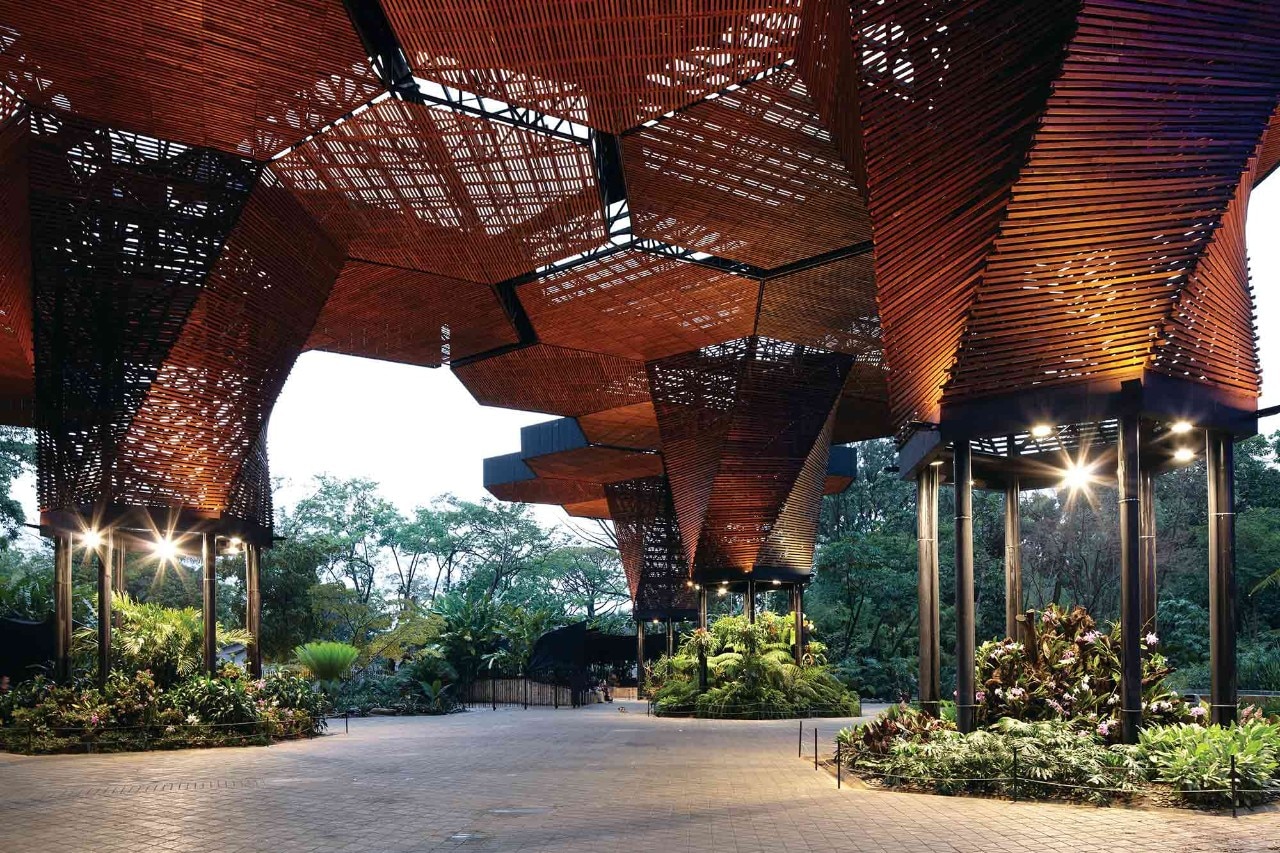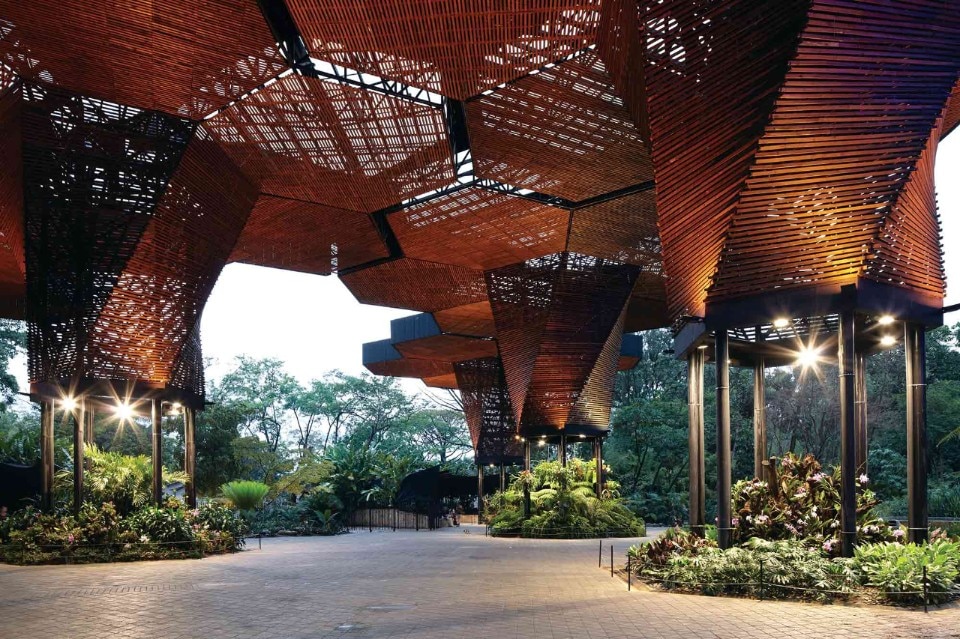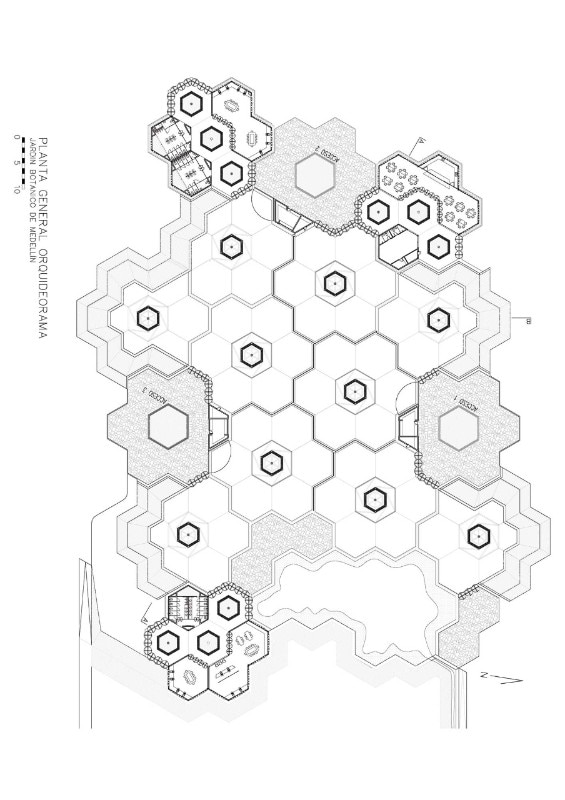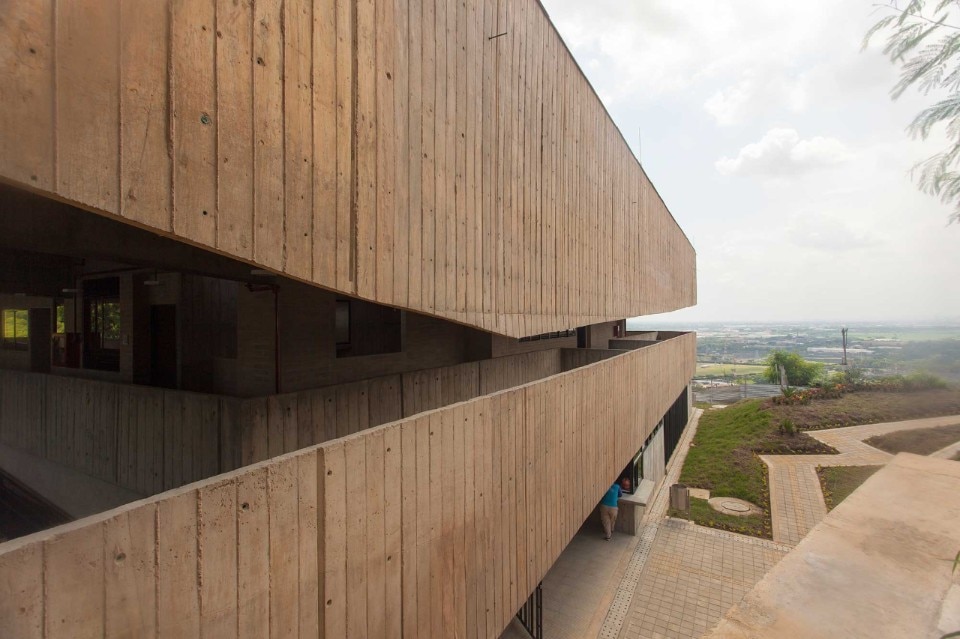Agenda was founded in Medellín, Columbia in 2010 by Camilo Restrepo Ochoa (1974) and Juliana Gallego Martinez (1980), both born in Medellín. The partners consider architecture to be a point of convergence of global, local and community, identity and disciplinary conditions. They describe themselves as an optimistic practice that promotes identity and is aware of the unbreakable tie established between architecture and the places to which it is anchored. They resist diffuse homogeneity. “Architecture can structure transition phases between global, particular and universal history by giving value to what is underestimated,” says Restrepo.
Buildings by Agenda are the tangible, tactile, inhabitable result of how the practice translates and blends economical, political, social and cultural ingredients into space. “We consider ourselves architects of the transition. We belong to a social group that has just exited a conflict that lasted more than 50 years, leaving us with a very fractured and polarised society.” Agenda’s “architecture for tropical conditions” is elastic and seeks to avoid univocality by favouring hybridisation between spaces that are conceived to host radically diverse functions over time. Far from a sculptural object, it wants to be a porous phenomenon that erodes with the place. The palette of materials is restrained – pigmented cement, steel and wood. Buildings use what is available on site, appreciating imperfections and craft techniques. One example is the recently completed Santuario Señor de Tula in Jojutla, Morelos, Mexico (2020).
What counts is that the materials are durable and that the buildings are passive. The weight-bearing structures are always emphasised. See Orquideorama (Orchid House, 2006), a public canopy in Medellín made of woven hexagons, steel and wood; and Farallones (2016), an industrial complex and community centre on a coffee plantation in Ciudad Bolivar, Colombia. The creative process begins with an in-depth analysis of the history of the place in order to reinforce its legacy. Restrepo taught at the Harvard Graduate School of Design and the Universidad Torcuato Ditella in Buenos Aires, Argentina. Work by Agenda was displayed at the 2017 Architecture Biennial Chicago and the MAK Center for Art and Architecture in Los Angeles.
Agenda
They describe themselves as an optimistic practice that promotes identity and is aware of the unbreakable tie established between architecture and the places to which it is anchored






_067953.jpg.foto.rmedium.png)
_067956.jpg.foto.rmedium.png)
